Language Acquisition Stages in Children
Jan 17, 2022 For many years, the phenomenon pertaining to the underlying basis or criteria of language development has remained a debated topic among linguists and psychologists.
Psychologists describe language acquisition as something that is heavily and mostly dependent on nurture and environment. In other words, children learn first words and more if they have a speech-rich environment.
On the other hand, although linguists and nativists agree that the environment of spoken language is important in learning communication, they also argue that the child’s environment alone is not enough or the only cause for effective learning. Child development happens with everything from babbling, to baby talk, to later language education.
Help your child build vocabulary with the Speech Blubs app. Start a free trial today and explore more than 1,500 activities your little one will benefit from and love! ❤️
Boost Your Child’s Speech Development!
Improve language & communication skills with fun learning!

Linguists reason that the human brain has an innate predisposition to acquire language. Cognitive development as far as learning language manifests itself even though it is not taught (Chomsky, 2006). The Poverty of Stimulus states that children are able to learn rich language systems quickly and effortlessly, even with limited exposures, with no direct teaching (Saxton, 2017).
As a result of this innate capacity, the stages of language acquisition occur in basically the same order for all children, universally! These milestones are:
1. Pre-birth: Preparation of the human brain for language acquisition after birth
Language acquisition begins well before a child is born. Babies are initially familiarized with speech and language in the womb. The human ear begins to function at the 3rd trimester or the 7-month mark of pregnancy (Saxton, 2017). During this period, unborn infants respond to all types of sounds.
What is more fascinating is that they can discriminate speech sounds from non-speech sounds. In the womb, babies are more sensitive to their own native languages than foreign ones, and also make a well-defined distinction between their mother’s voice and others (Saxton, 2017). This phenomenon is one of many natural occurrences that supports the claim that language is hardwired in the human brain.
This stage of language perception/hearing in the womb is essential for language acquisition after birth. Children who are born with congenital auditory impediments or hearing loss are deprived of this stage. As a result, language acquisition is generally delayed by four to five months after birth (DeLuzio, 2020).
2. Babbling – 7 months of age
At this stage, infants begin to explore the properties of sounds through production. The sounds of early babbling are universal. However, by the time a child reaches the age of 8 months, a drift occurs in the characteristics of babbling (Helms-Park, 2018). Babbling becomes more distinctive. Infants begin to make sounds that would only occur in their own native languages.
A French baby and an American baby will not babble the same, as there are certain sounds that English and French do not share. At this stage, parents should expect their children to go through three phases. They follow:
- One consonant and a vowel at a time. Example: “ma,” “da,” “du,” “bi”
- Reduplicative babbling. Example: “da-da-da-da”
- Non-reduplicative babbling. Example: “ba-du-ba-du.”
In these phases, the most frequent vowels and consonant sounds that are produced by English babies are: ‘i’, ‘u’, ‘a,’ and ‘b’, ‘d’, ‘g’, and ‘m’. Vowels are generally easier to produce than consonants, as they do not require many obstructions in the vocal or nasal tract.
3. One-word (Holophrastic) Stage – 1-1.5-years-old
During this stage, children begin to acquire and produce real words of their native languages. A child in this stage will use single-word constructions to communicate. The use of single-word items is meant to convey full sentences provided the context.
As expected, word productions are extremely redundant. The one-word productions have three functions:
- Express emotions: “uh-oh,” “bad”
- Request a desired action: “up,” “down,” “gimme”
- Name objects: “baba” (bottle), “truck,” “doggie,” “mine”
At this stage, children know the meanings of words that they say, as speaking is often accompanied by finger-pointing (Helms-Park, 2018).
4. Two Word Stage – 1.5-2-years-old
Children usually enter this stage when they have acquired about 50 words. They begin to demonstrate their knowledge of the word order that occurs in their language. English has a SUBJECT VERB OBJECT (SVO) word order. It is very common for production to take the following structures:
- Doer + action: “Tommy play”
- Action + affected object: “Kick ball”
- Possessor + possessed object: “Daddy key”
- Negation/Refusal/ Cessation of existence: “No veggie,” “all gone milk”
At this stage, lots of verbs, nouns, and adjectives emerge, as well as intonation! Intonation is a clear indication that children do not perceive speech production as one chunk, but rather as individual words coming together to convey a more complex meaning.
5. Telegraphic Stage – 2-2.5-years-old
At this stage, children experience a vocabulary spurt or “explosion.” Production is pidgin-like, as grammatical/function words (little words) such as ‘the,’ ‘a,’ ‘is,’ ‘will,’ ‘of,’ ‘by,’ pluralization, tense (past -ed), verb endings/person agreements (she eat ‘s’) are omitted.
During this stage, a child will primarily communicate with content words (verbs, nouns, adjectives) and some pronouns such as ‘me’ and ‘mine.’
Although many function words are missing at this stage, children obey the word order and structure of their language. Considering the English word order (SVO), English speaking children are expected to produce phrases similar to the following sentences:
- “Want more ice-cream.”
- “Mommy go bye-bye.”
- “He go play.”
6. The After Telegraphic Stage – 2.6+-years-old
Early in this stage, complete sentences begin to emerge. Imperative and declarative sentences appear first (Helms-Park, 2018):
- Imperative (command): “Give me my toy.”
- Declarative (Relay information): “That’s my toy truck.”
Coordination (acquired first) and subordination sentences also appear early in this stage, however, they are mastered by 4-5-years-old (Helms-Park, 2018):
- Coordination (Two clauses joined in a symmetrical relation): “I am tall, but she is short.”
- Subordination (Two clauses joined in a non-symmetrical relation): “When I am older, I am going to be bigger.”
Progression of more complex questions and negatives appear between 2.6- 3.0-years-old (Helms-Park, 2018). By a child’s 3rd birthday, they begin to use more grammatical/function words, such as regular plural ‘-s,’ endings on verbs ‘-ing,’ prepositions (of, in, by), but third person agreement comes a bit later “She loves candy.” Near the end of this stage, almost everything is acquired between the ages of 5-6 (Helms-Park, 2018).
Conclusion
Given this guideline of language acquisition, parents should note that kids are different in their rate of language development. A child who may be behind does not necessarily indicate a language impediment. Again, every child is unique and different. Some may acquire language faster than others.
It is always important to be mindful that comprehension of language always precedes production by some months. Language competence does equate to production. Most children who encounter delays in language development, including auditory impediments, usually catch up with their peers by the age of 3 (DeLuzio, 2020).
References:
- Chomsky, N. (2006). Language and Mind (3rd ed.). Cambridge: Cambridge University Press.
- Deluzio, J. (2020, January 23). Audition & Spoken Language, and Language Development in Children with Hearing Loss. Toronto, Ontario, Canada.
- Helms-Park, R. (2018, November). Morphosyntax. Toronto, Ontario, Canada.
- Saxton, M. (2017). Child Language Acquisition and Development (2nd ed.). Los Angeles: SAGE Publishing.
- Takahashi, E. (2018, November). The Perception and Production of Speech Sounds. Toronto, Ontario, Canada.
Have a question for our Speech Therapists?

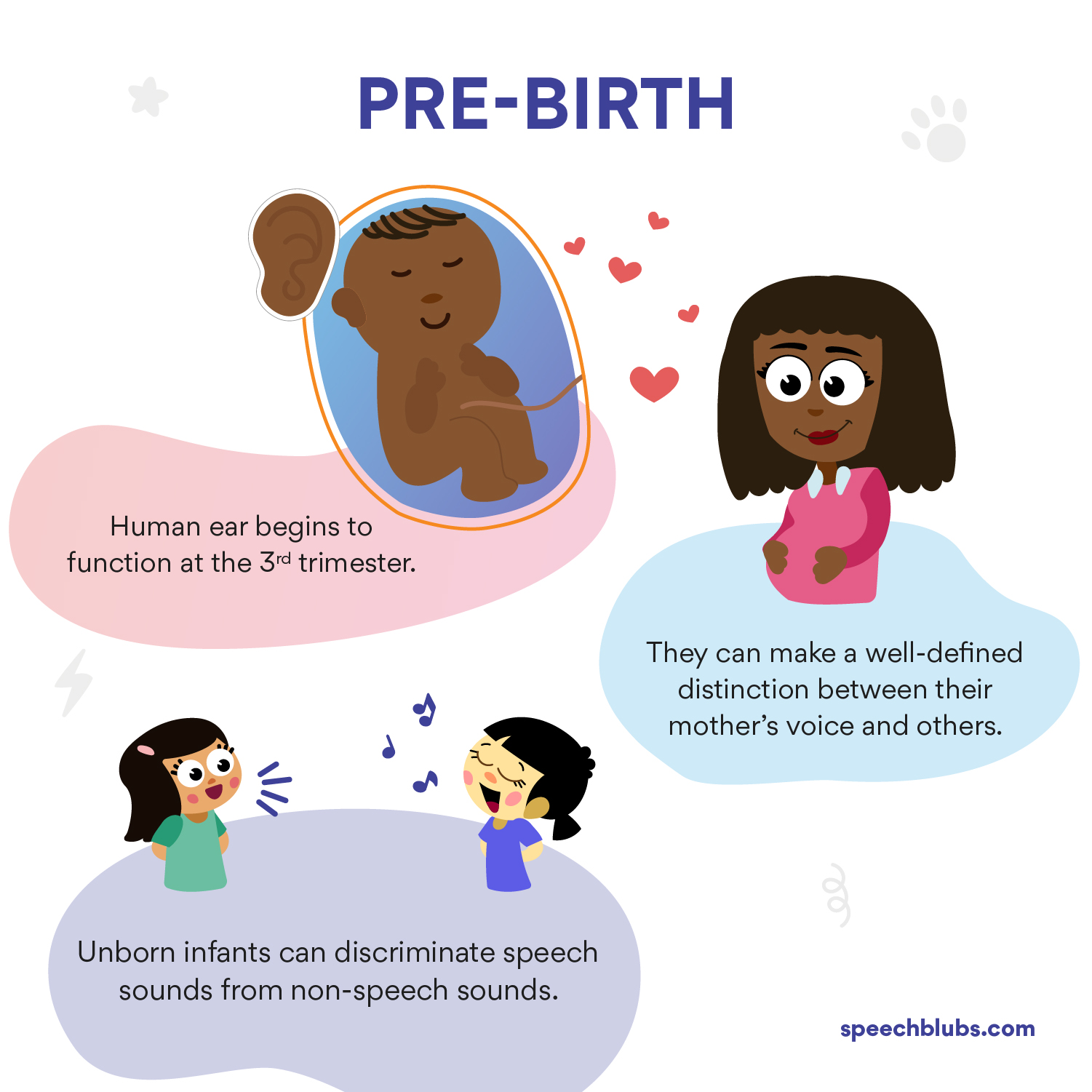
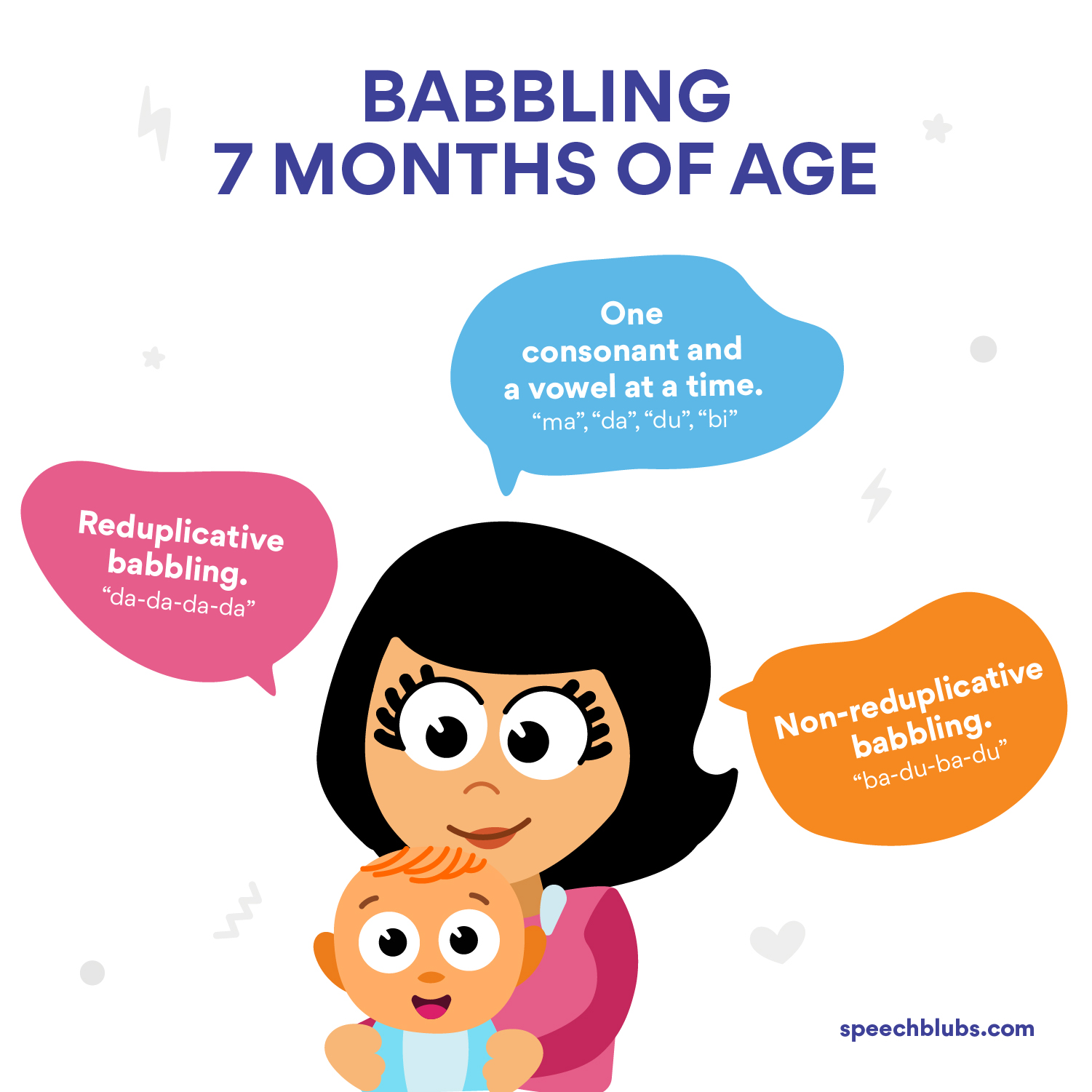
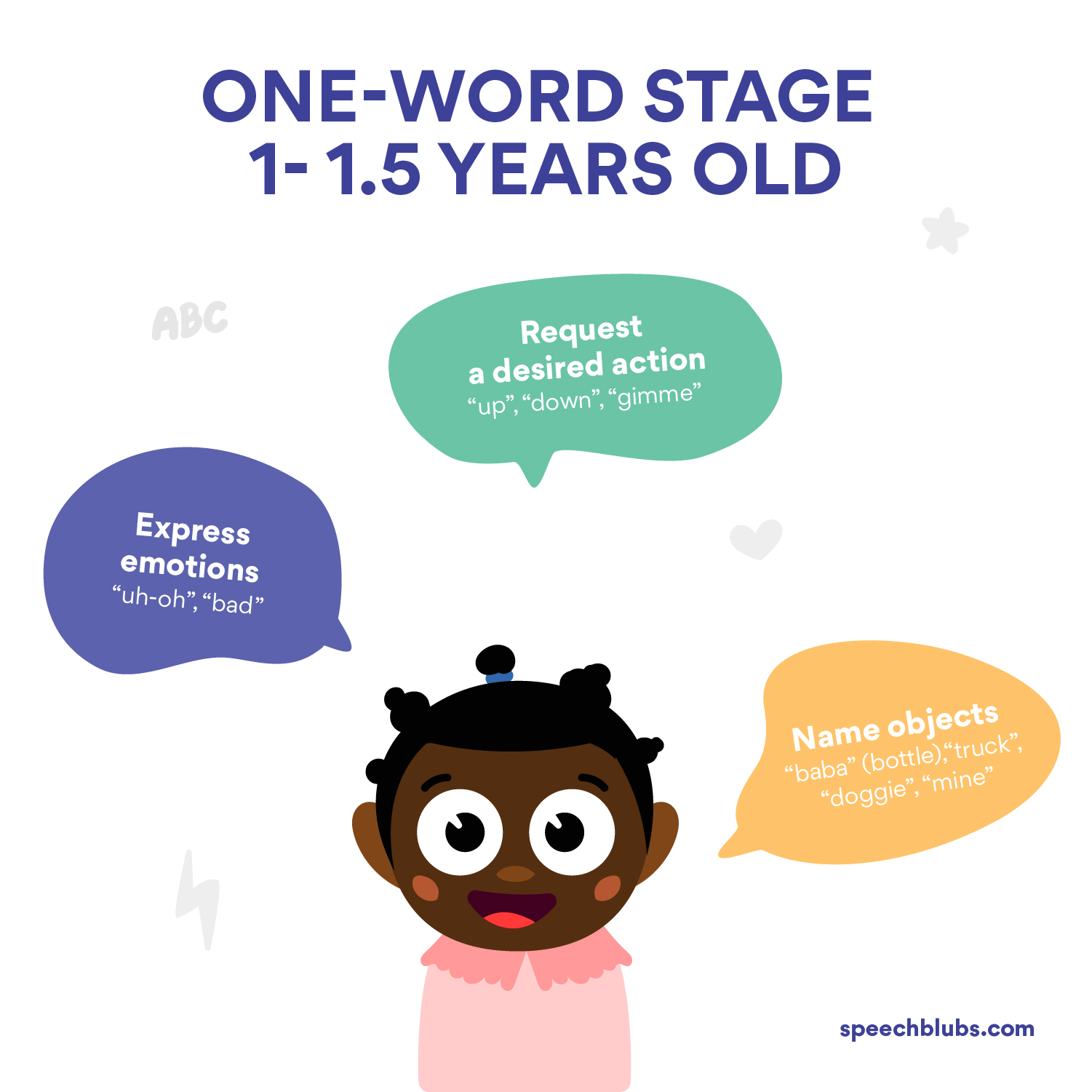
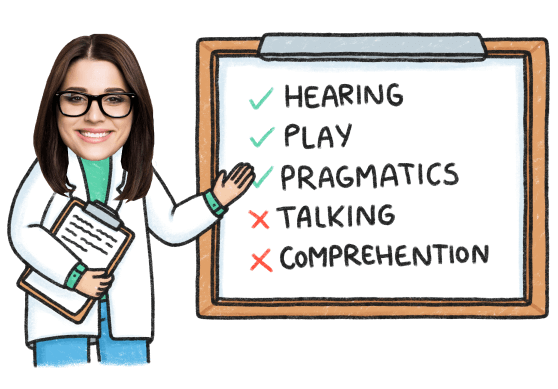
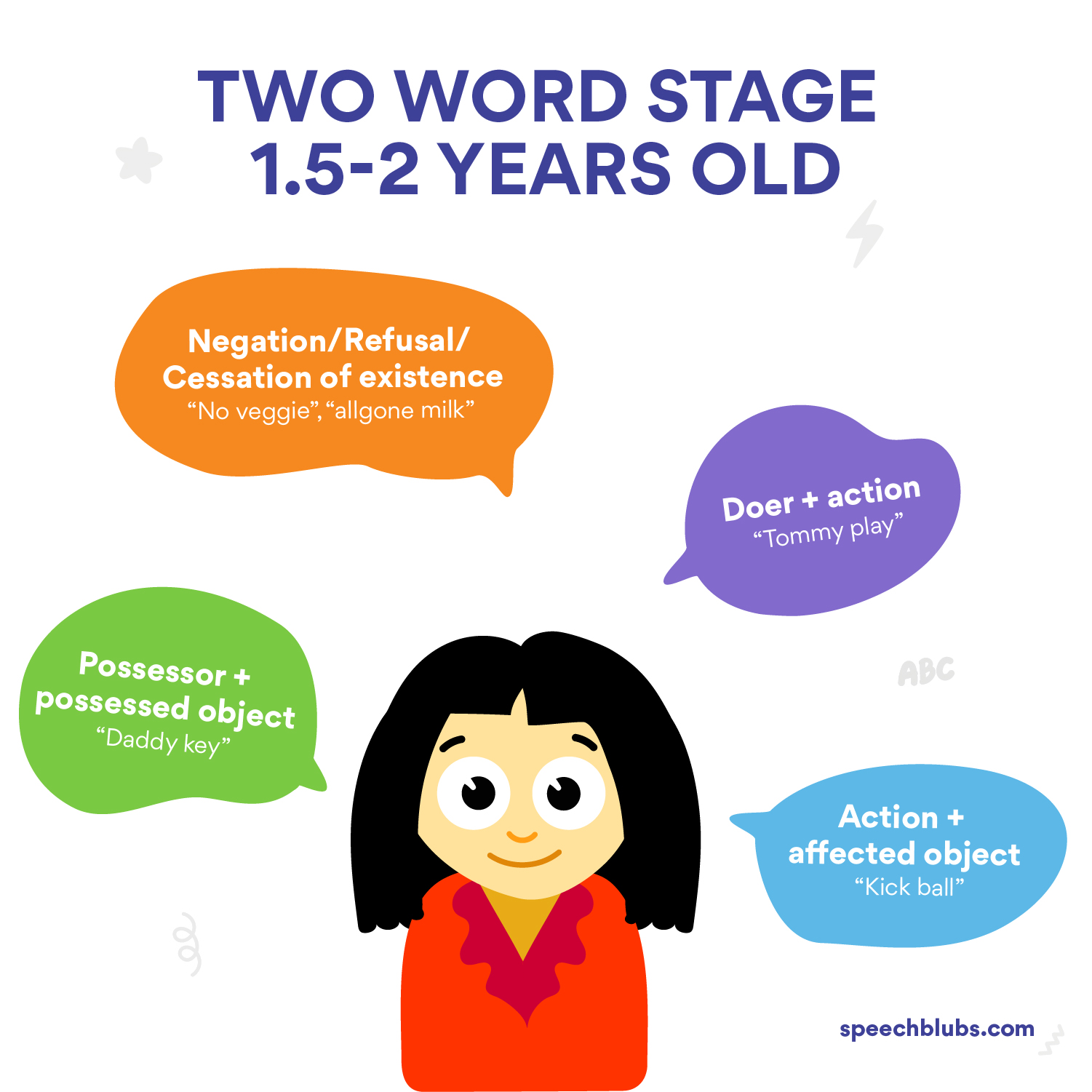
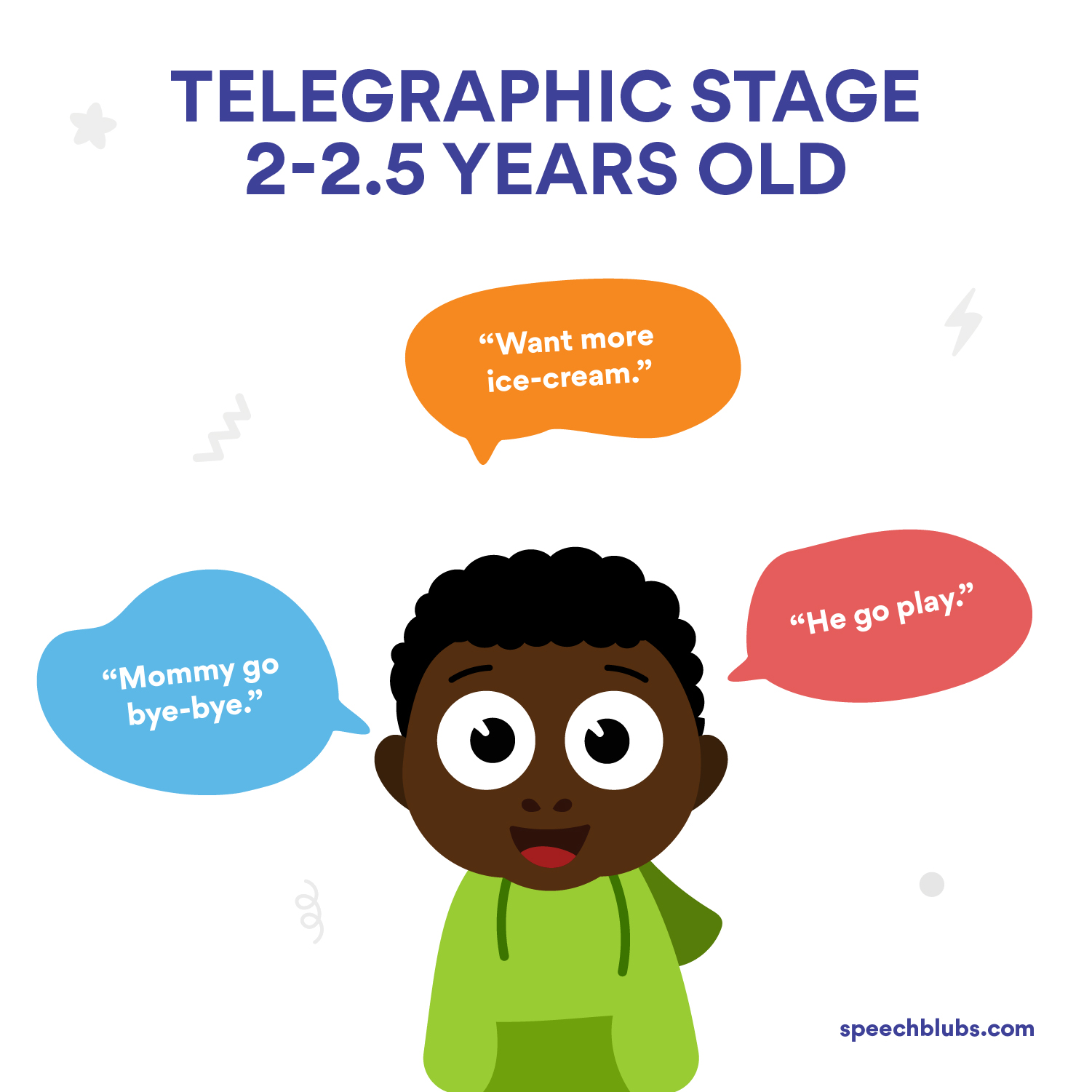
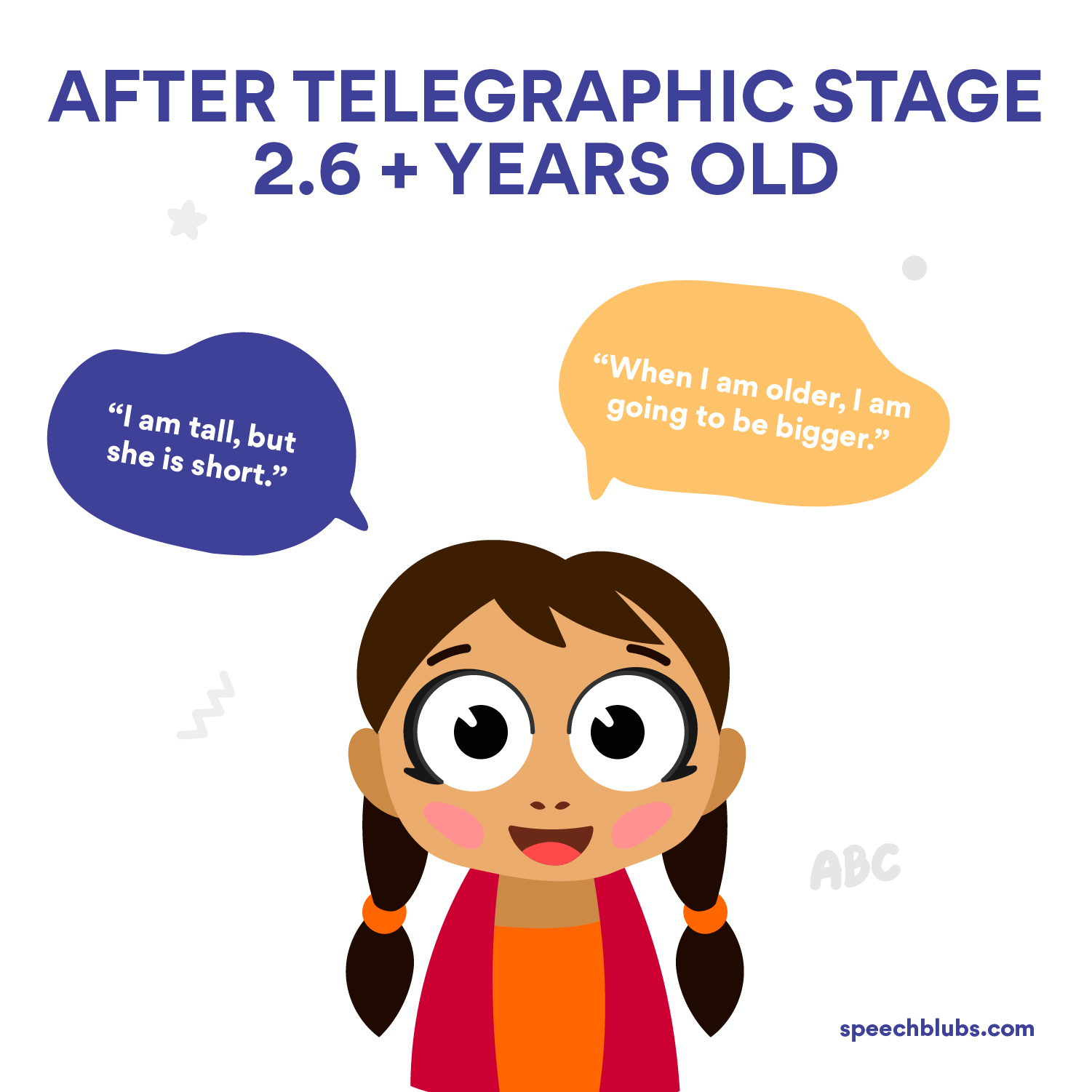
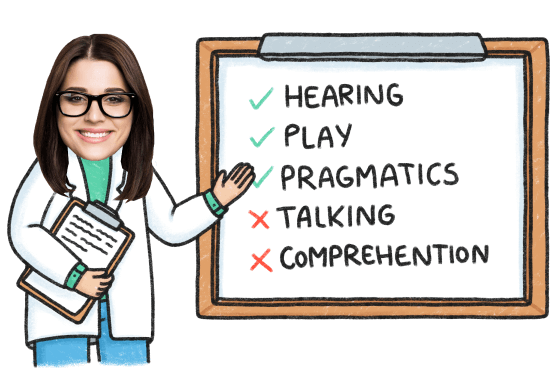
Is there a chat line /blog or phone customer number for phone use?
Hi, you can reach us at hi@blubblub.org! If you want to chat, write to us on Instagram or join our IG live every Thursday at 4pm eastern!
My son will be turning 7 in February and he still struggles with some irregular verbs. He is currently in 1st grade. What are your thoughts on this? Many thanks!
Irregular verbs and grammar, in general, can be very difficult for children to understand and carry over rules from situation to situation. Verbs range in mastery from 3 years of age, all the way until 8 years of age. Due to the fact that your son is not quite 7, I wouldn’t be too concerned. Please remember that just because he might not have mastered something from the 5-year-old level, doesn’t mean he hasn’t mastered something from the 8-year level. These skills can be all over the place!
Stacie Bennett, M.S. CCC-SLP
I have a daughter who is three and another who will be 2. My issue is that the 3 year old has expressive/receptive language delay (which is improving) but she still gets all the pronouns mixed up and it is a struggle to get her to understand how to use them correctly. As a result, the 2 year old repeats what the 3 year old is saying which is wrong! The 2 year old will say Please help you instead of please help me. I would correct the 2 year old but because she hears the 3 year old saying it incorrectly, she repeats the wrong thing consistently. It is very frustrating to say the least. The 3 year old already has speech issues and now the 2 year old is repeating incorrect language as well. How do I rectify this? The 2 year old doesn’t seem to have a speech delay. She answers questions appropriately for her age and she can formulate some sentences on her own; i.e. pick me up, I don’t want it, see you later. Whatever the 3 year old says is like golden for her vs what I tell her!!
P.S. The 3 year old doesn’t have autism. She was evaluated by a speech therapist already. Speech therapy on hold in view of rising COVID cases. But I have been doing a lot of exercises from an online speech therapist Carrie Clark which is amazing to say the least and it has really improved the 3 year old’s speech.
I completely hear what you saying and know that it can be frustrating. Pronouns are very difficult for children to understand and are sometimes the last things (other than vocabulary and grammatically correct sentences) to develop. I would keep modeling the correct form of the pronoun to your three-year-old, in front of the 2-year-old. At 2, she isn’t supposed to understand pronouns 100% of the time, but it sounds like she DOES have a grasp on it because she’s saying things like “pick ME up” or “see YOU later.” It sounds like it’s a case of monkey-see; monkey-do (my kids do it all of the time)!
Stacie Bennett, M.S. CCC-SLP
My grand child is 20 months old, has been tube fed since about 3 months old. She had severe reflux issues and needed to be tube feed, but now she’s not even beginning to say words, only babbles from time to time. Is this normal for a child that has been tube feed? The doctor says their not sure if it’s just a delay and she will talk when she’s ready or if there is a problem. She was being taken to a speech therapist but they didn’t do much for her. Help, can you give me any information? Please
If a child has been tube fed since 3 months, the odds are that they are not used to moving their mouths in a way that stimulates sounds. When we chew, we use tons of different muscles and articulators (mouth, tongue, cheeks). The movement of these parts prepares us for the production of sounds. If she is only babbling at this point, I would get her into a speech-language pathologist. They will be able to start oral motor exercise and get her mouth moving in a way that gets speech production started. Just because the last speech pathologist didn’t seem to do anything, doesn’t mean another one wont. Also, as frustrating as it can sound, speech therapy can take years before actual progress is seen. Did they diagnose her with low tone or anything else? Is she still tube fed? Please let us know!
Stacie Bennett, M.S. CCC-SLP